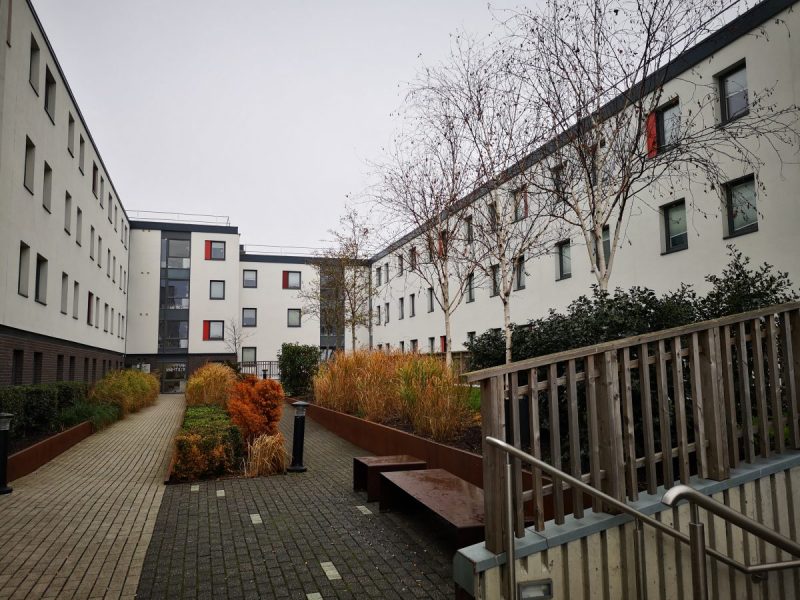“Many of those companies have repeatedly demonstrated that student welfare is at the very bottom of their list of concerns, never mind the top priority”. Lewis Tibbs tells us why student accommodation providers need to start taking student wellbeing more seriously.
£24.
That is the amount of money left if you deduct the average cost of student rent per month (£548) from the average monthly maintenance loan (£572).
That figure alone shows that there is clearly a huge issue here, and that issue is the ludicrously high cost of student rent.
One look at the graph below shows the sheer scale of the increase, in such a remarkably short space of time.

These increases demonstrate that for both universities and private providers, student housing is an increasingly lucrative game to be a part of, and it is a game in which they regularly come out on top.
The market for purpose-built student accommodation (PBSA) in the UK is valued at more than £50bn, and investors are fighting tooth and nail to build more and more – increasingly expensive – student accommodation.
Global investors have flocked to the UK, quick to dominate city skylines with brand new “luxury” student high rise buildings, as student housing is seen as a safe bet to put their millions on.
Investors range from families in the Middle East, one of which recently completed a $450 million acquisition of a UK based student housing portfolio, to Canada’s largest pension fund, which has a 18% share in Unite Students, one of the UK’s biggest student housing developers.
Evidently, student housing is a big payday, and universities and private developers are banking huge profits at the expense of student debt.

These developers (and universities) are smart. They know how to sell; they know how to advertise; and they know exactly how to directly appeal to wide eyed teenagers who are moving away from home for the very first time.
They know how to make that first taste of freedom seem ever sweeter – at a small price of £150+ per week.
With polished marketing videos and fancy websites which boast about the “ultimate student life” and a “hotel-like experience”, it is easy to see how students could be easily tempted.
But as expected, it too often leaves a sour taste.
Maintenance problems are rampant, such as damp, holes in roofs, lack of water and heating, flooding, wastage build up, bed bugs and rodents. Then there are regular reports of issues like lack of internet connection, restriction of promised facilities, inappropriate staff visits and confrontational security.
Some female students have also told me about instances of security entering their rooms inappropriately without consent – one even revealing how they were in the shower when security tried to enter their room unannounced, a horrifyingly uncomfortable experience.
All of this isn’t even including the atrocities we have seen during the pandemic – where students have been bullied, intimidated and threatened by huge companies who have vast amounts of wealth, power and resources.
Many of those companies have repeatedly demonstrated that student welfare is at the very bottom of their list of concerns, never mind the top priority, as they often try to proudly claim.
To them, we are simply a way to make money, a means to an end.
They regularly get away with providing a substandard service at a grossly inflated price, and it will carry on like this unless the government and universities take action to protect students from exploitation.
This action could include…
- Introducing a sustainable rent structure where 25% of beds in halls are offered at 50% of the maximum student loan, to ensure that enough affordable (and safe) options are available
- Local authorities working with universities to create approved housing schemes, in order to boost the reliability and trustworthiness of local providers
- Applying Rent Pressure Zones on purpose build student accommodations so that rents can only be increased to the annual rise of inflation, plus 1%, to prevent inflated and unaffordable prices
Increasing student loans is not the solution, it simply pushes the burden onto the backs of already indebted students.
The unregulated market we currently have is unsustainable and has been out of control for years, the pandemic simply exposed the gaping holes in the system.
We must take action to protect ALL students in future.
By Lewis Tibbs
This is an opinion piece and does not necessarily reflect the views of Platform Magazine and all its members.

